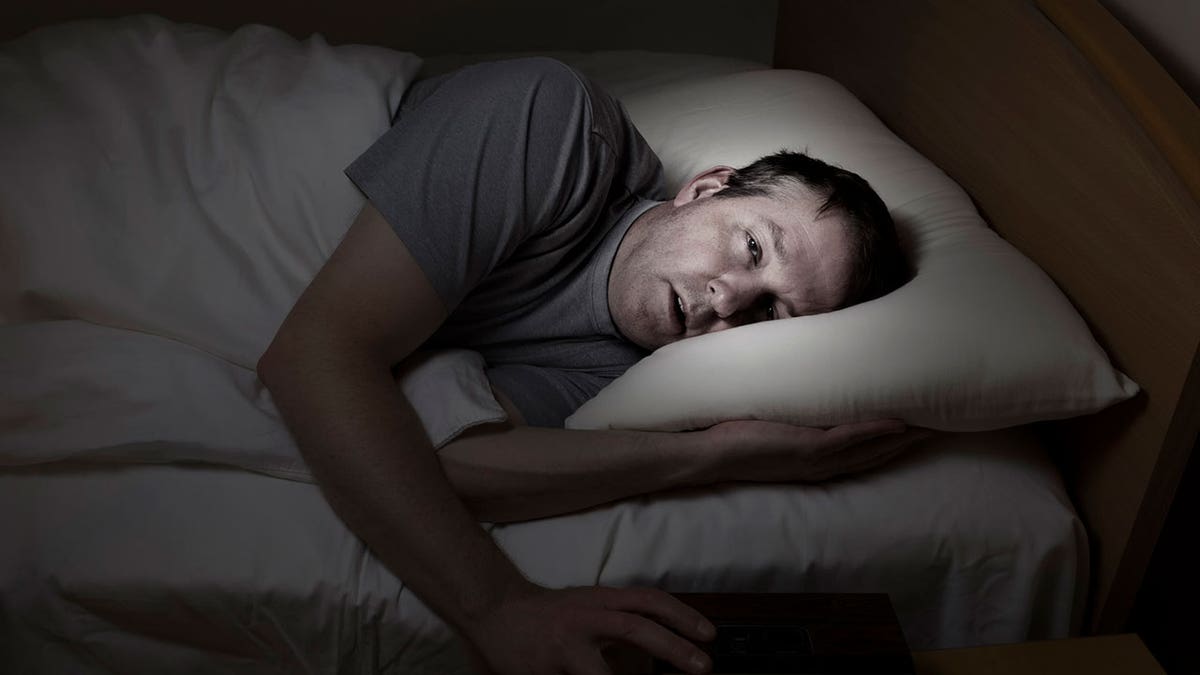
The average American said that around 80 percent of their bad days are caused by stress at work. (iStock)
Having a bad day? Brace yourself — the average American experiences 60 bad days per year, a new study has revealed.
The survey of 2,000 working Americans examined how we deal with stress, what exactly a “bad day” consists of and what effect it has on our health.
Work was inevitably a big contributor, as the results found the average respondent blames work for four out of the five bad days they experience in a typical month.
The research, commissioned by fitness app Freeletics, looked at the specific reasons given for people recently experiencing a bad day and found not getting enough sleep was the biggest contributing factor to a bad day (67 percent).

Lack of sleep was the biggest contributing factor for a bad day, said respondents. (iStock)
Feeling sick is also a big factor to a bad day, as well as financial worry and work-related stress.
THESE STATES SPEND THE MOST ON ENGAGEMENT RINGS
The mood of our days rests in a gentle balance, as one in four Americans said that not having any hot water in their shower has completely ruined their day on at least one occasion.
Thirty-four percent have had their days ruined by having some plans fall through, and 25 percent said a bad hair day led to a full-fledged bad day.
Sporting heartbreak can even ruin a day, but most Americans are able to quickly shrug off their favorite sports team losing a game, with only eight percent listing it as a contributing factor to a bad day.

Heartbreak, sports, and even bad hair contributed to Americans' woes, with 25 percent reporting that the latter has ruined their entire day. (iStock)
DR. TRAVIS STORK: THE TWO THINGS YOU NEED FOR A FLAT BELLY
Stress and bad days are bad for us, both mentally and physically. Fifty percent of Americans reported that they are more likely to indulge in admittedly unhealthy foods after a bad day, and 34 percent are more likely to have an alcoholic drink.
But is that the most effective way to deal with stress? According to the results, a little “workout therapy” will go a longer way in helping with bad days. Survey respondents were split based on their frequency of exercising, with results showing how beneficial working out actually is — both physically and mentally. The frequently with which someone works out correlated with how likely they were to report that exercise helps them deal with stress.
“These findings make a lot of sense, as working out after a tough day can be a very effective stress reliever, especially because it boosts those all-important endorphin levels,” says John-Francis Kennedy, Training Specialist at Freeletics.
Of the people who worked out 2-3 times per week, 46 percent claim it’s a good stress reliever. And for the people who worked out 4-5 times per week, that percentage jumped to an impressive 64 percent.
Of those who exercise, an incredible 95 percent said working out after a bad day makes them feel better. Over half (51 percent) said working out makes them feel more energetic at work. Forty-four percent feel more motivated, and 43 percent feel more clear-headed.
FOLLOW US ON FACEBOOK FOR MORE FOX LIFESTYLE NEWS
This is no real surprise, considering the science: “Any form of exercise can help to relieve stress and frustration: it leads to an increased level of some hormones, dopamine, serotonin and endorphins in the body,” Kennedy explains. “These, in turn, contribute to the feeling of happiness and a reduced level of the stress hormone cortisol.”
